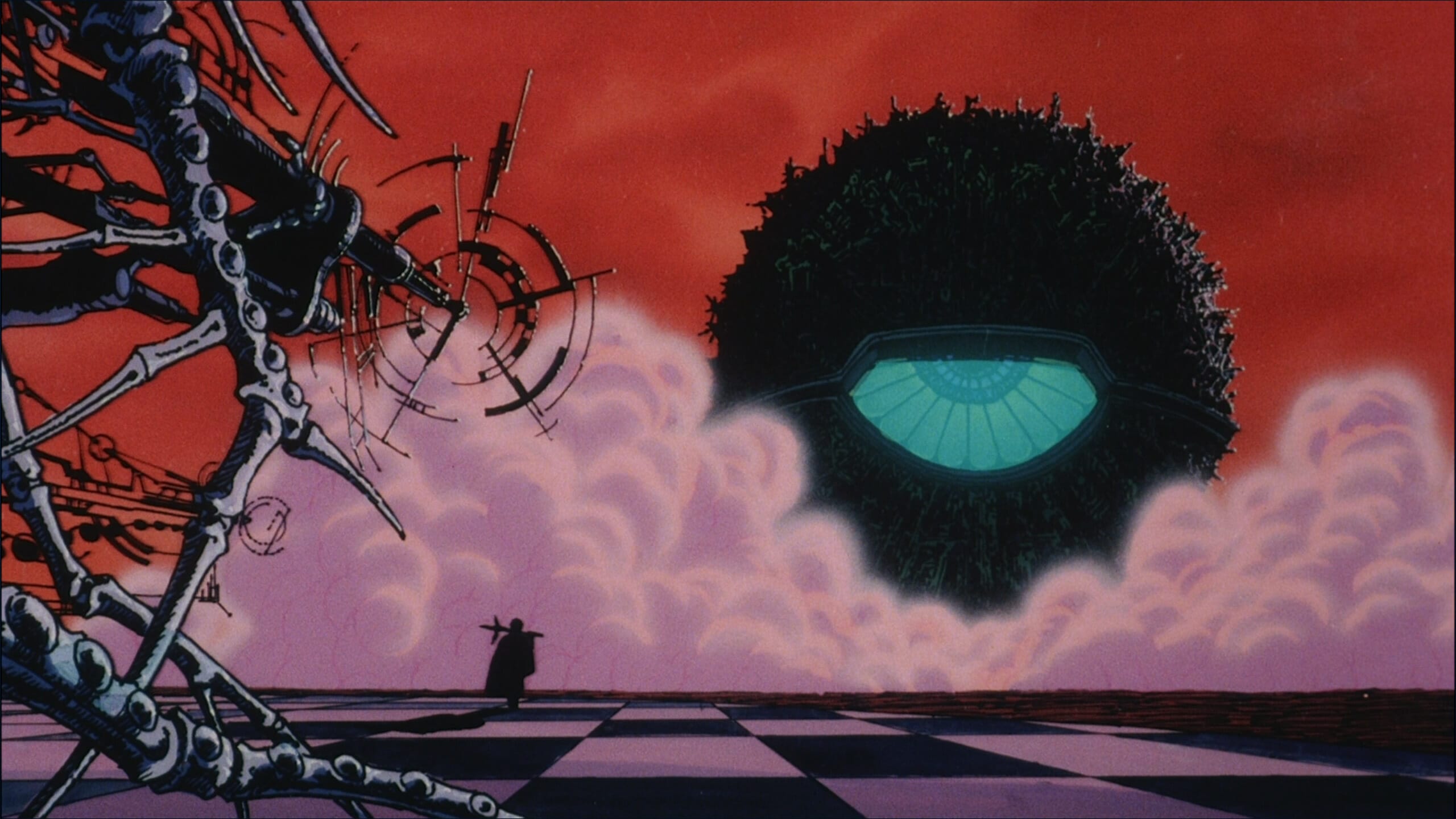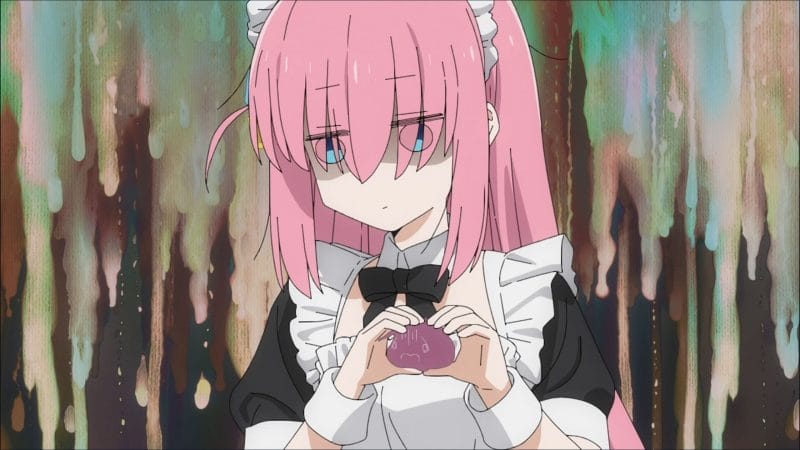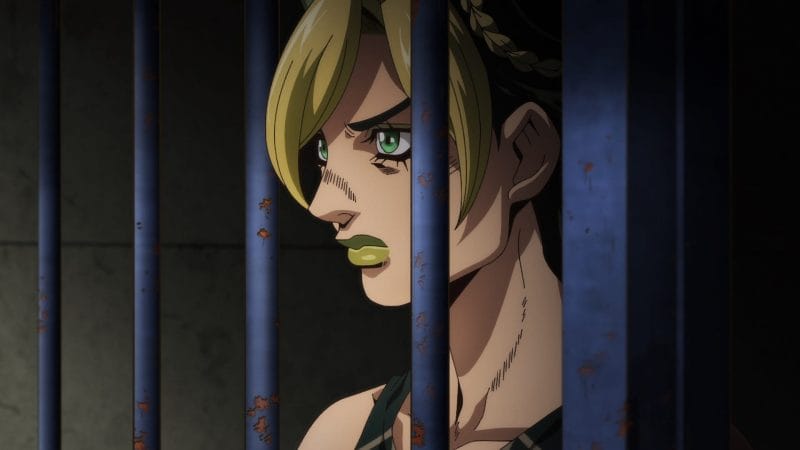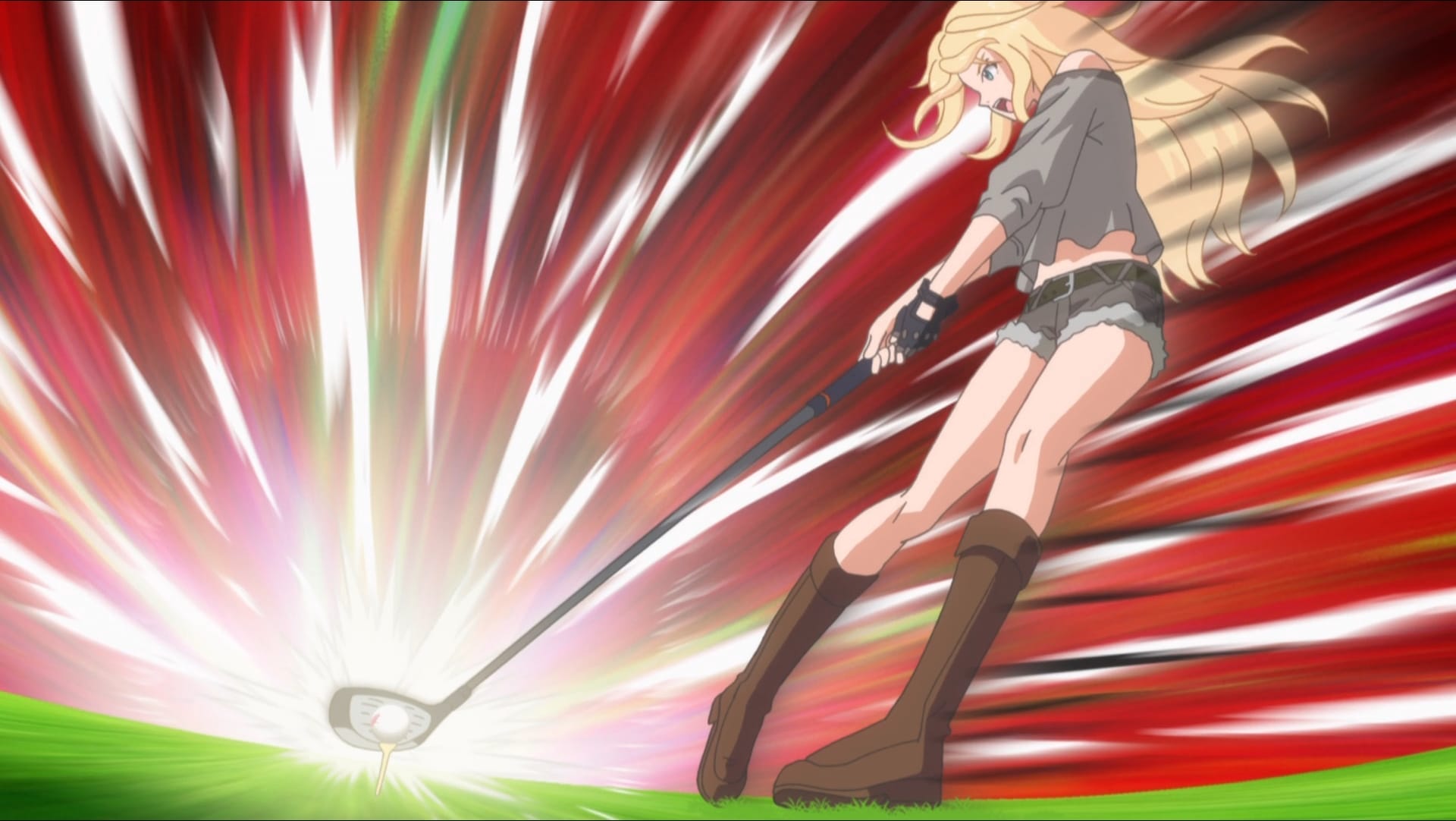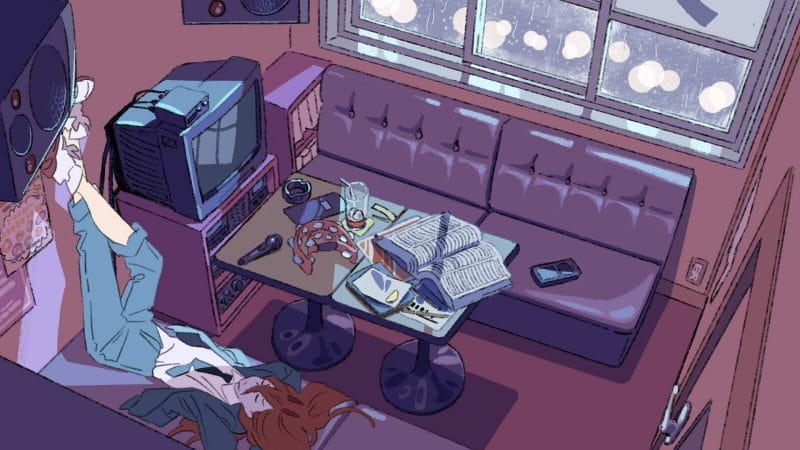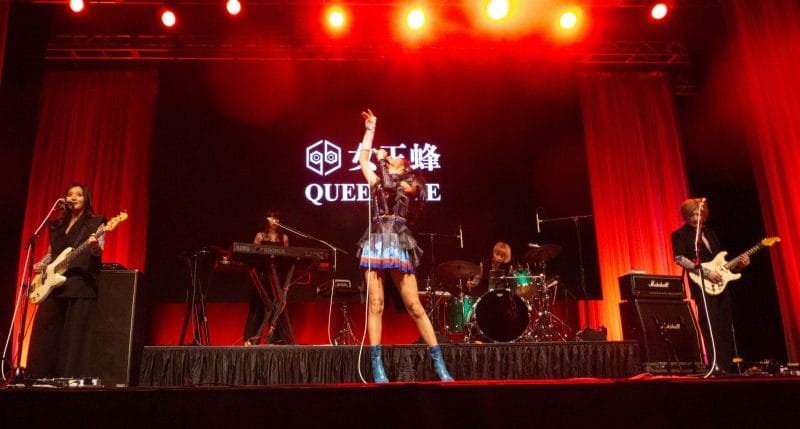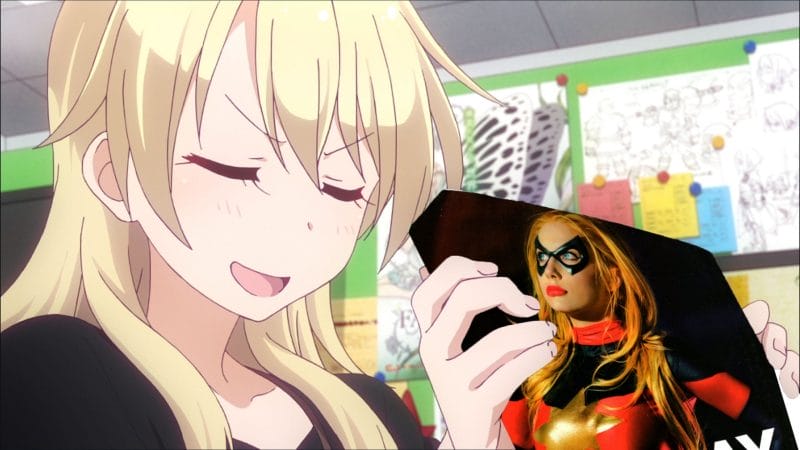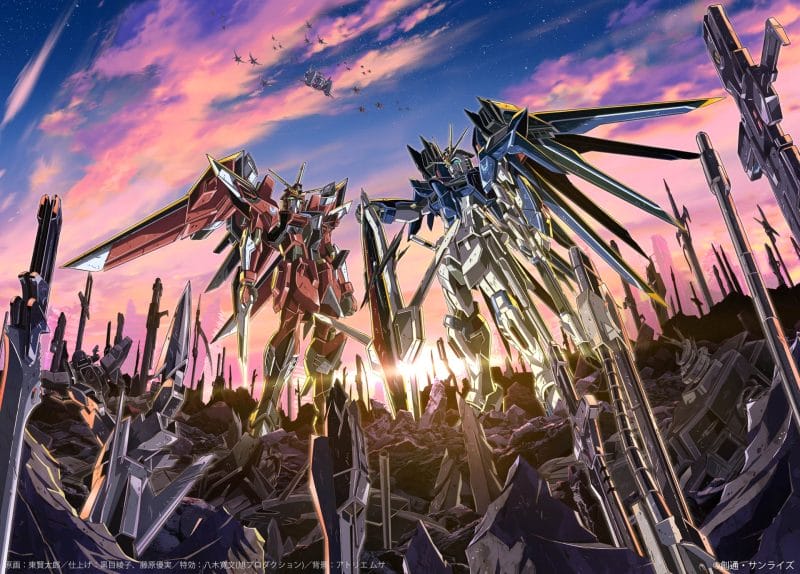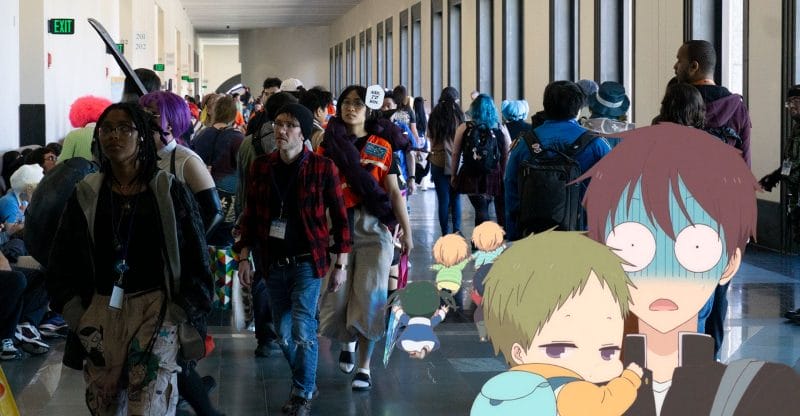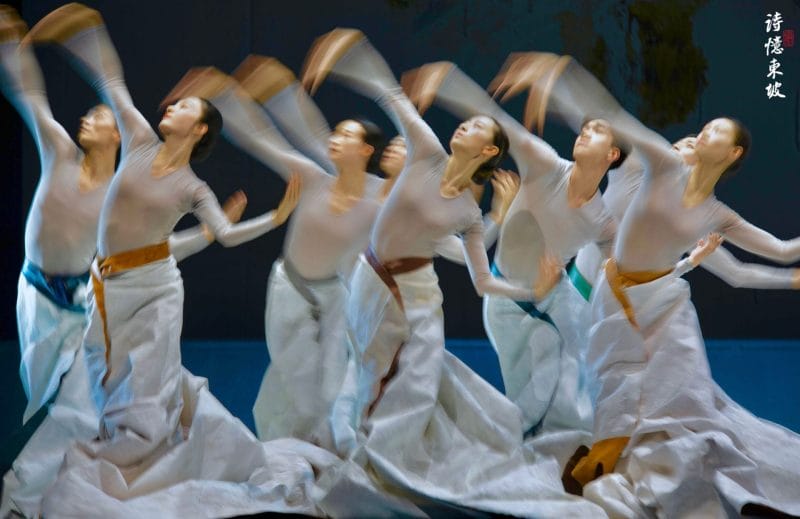An egg. A man. A girl. An empty city of grand, gothic buildings populated by shadows hunting the shade of some great fish. Skeletons of massive beasts. A floating sphere covered in statues crashing into the water, then rising again. An unanswerable question spoken softly:
Who are you?
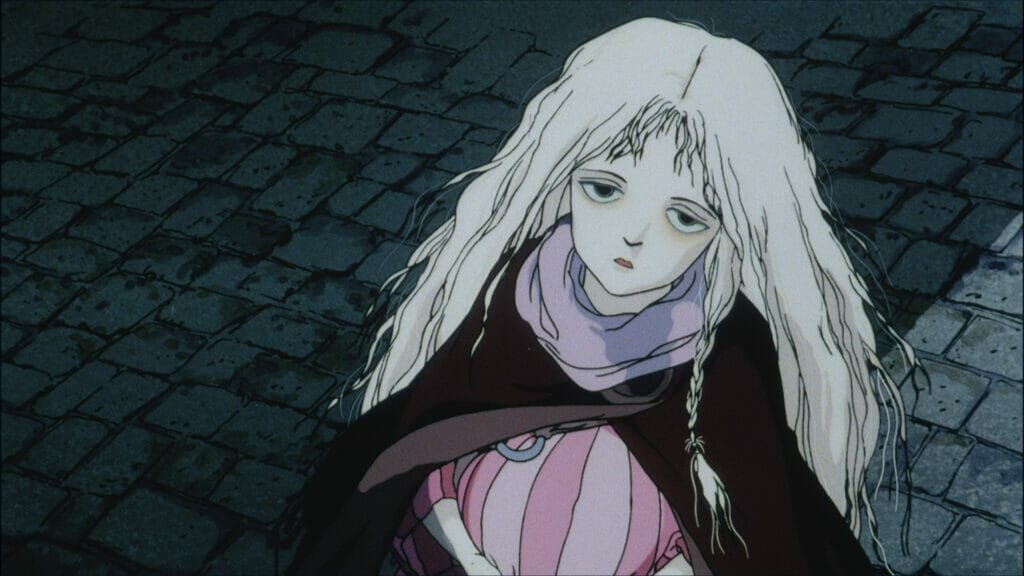
Two years before Yoshitaka Amano would draw the first of many Final Fantasies, he collaborated with Mamoru Oshii to create the esoteric and opaque masterpiece Angel’s Egg. Some call it simple nonsense: a movie without characters or plot, with little dialogue where what is said seems devoted to questions the viewer has no connection to. Others find the film striking, not only visually, but emotionally. Existentially, even, as the ethereal beauty of Amano’s art traipses hand in hand with Oshii’s insistence that imagery matters more than anything else (Cavallaro). In either case, it is something unforgettable, even if the viewer wishes they could, or even if they hated it for wasting their time.
My wife woke me at three in the morning, thirty-two weeks into her pregnancy. Her water broke. We called my mother to watch our son, then hurried to the hospital where, after a brief examination, my wife was told that she’d be there until the baby was born. They hoped that would be two weeks away. It ended up being exactly seven days.
My life became a blur during that week, as I drove the miles back and forth from my wife at the hospital, to my parents’ house to be with our three-year-old son, then back to our house, which we had just sold and still needed to pack for our move. I spent that strange, fragmented week constantly in motion, always doing but never able to stop, to settle, to consider.
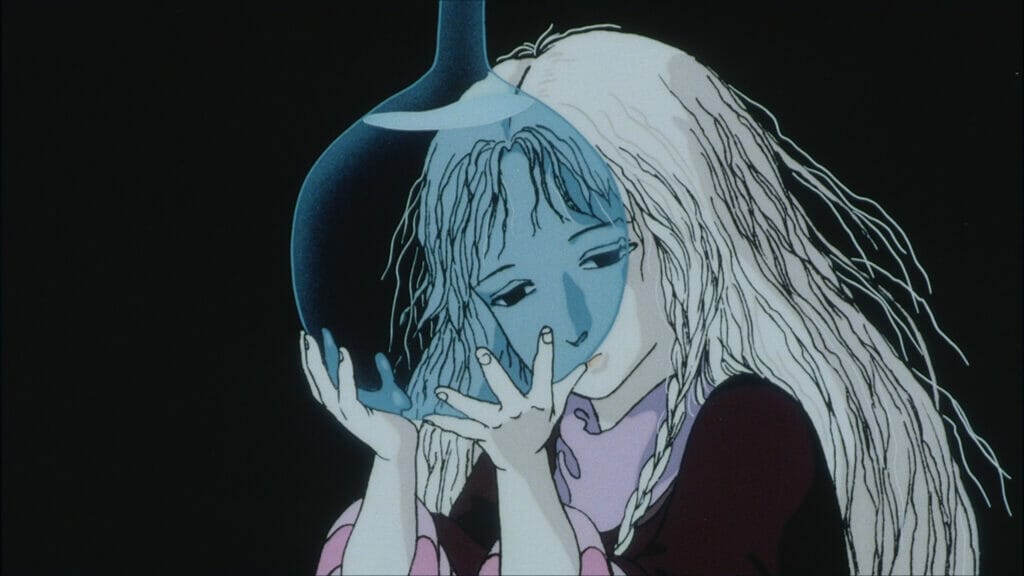
I watched Angel’s Egg every night before going to bed. Sometimes, I barely even looked at the screen as it played. I just allowed it to wash over me, radiating its incomprehensible beauty upon me. Other times I was immersed, so deep in moments of the film that I felt, more than perceived. In truth, understanding disappeared. My brain no longer equipped to make sense of this or that, of narrative or iconography. It was just doing what it could to keep me upright, keep me moving, sustaining me enough to be a father to my son and a husband to my wife, with nothing left for whoever I was in-between.
Something about the girl endlessly filling bottles of water struck me. It was an act of desperation, of need to survive, to drink. Such actions become a habit, and a habit becomes ritual. The ritual takes on spiritual significance in this empty, stranded city.
It’s a dead city of dead things, but water is life and the girl yet lives. She carries a great egg that she listens to. She hears wings and flight.
Hope.
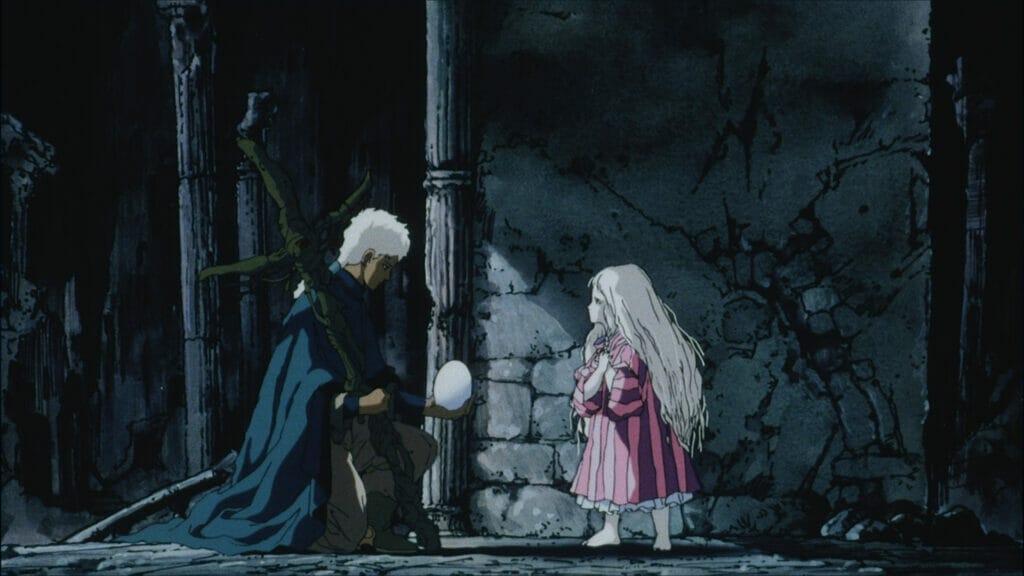
Myths, old and new, define Angel’s Egg. Nearly an hour into the film, we’re finally given something to grasp onto beyond the imagery of a girl wandering the empty, baroque city as she fills bottles with water. The man who carries a strange wooden cross tells the girl a story of a tree and the egg of a great bird. Perhaps it’s the tree of life. They discuss the egg. The bird. Later, he tells the girl the story of Noah and his ark, a tale that he doesn’t know why he remembers.
When the girl falls asleep, he destroys her egg. When she wakes, she finds the shattered shell and shrieks, then throws herself into a chasm, into the water. Beneath the water’s surface, she becomes an older version of herself, who looks identical to the statues on that floating sphere bookending the film.
Some may describe Angel’s Egg as a surreal science fiction fairy tale. It may be equally apt to call the feature Christian Lovecraftian horror.
Science fiction has been described as myths of the future. Oshii and Amano used Biblical myths to anchor their film to a world the viewer understands. even as they use the language and conventions of science fiction to build a new story. A new world that may be our world in some distant, calamitous future.
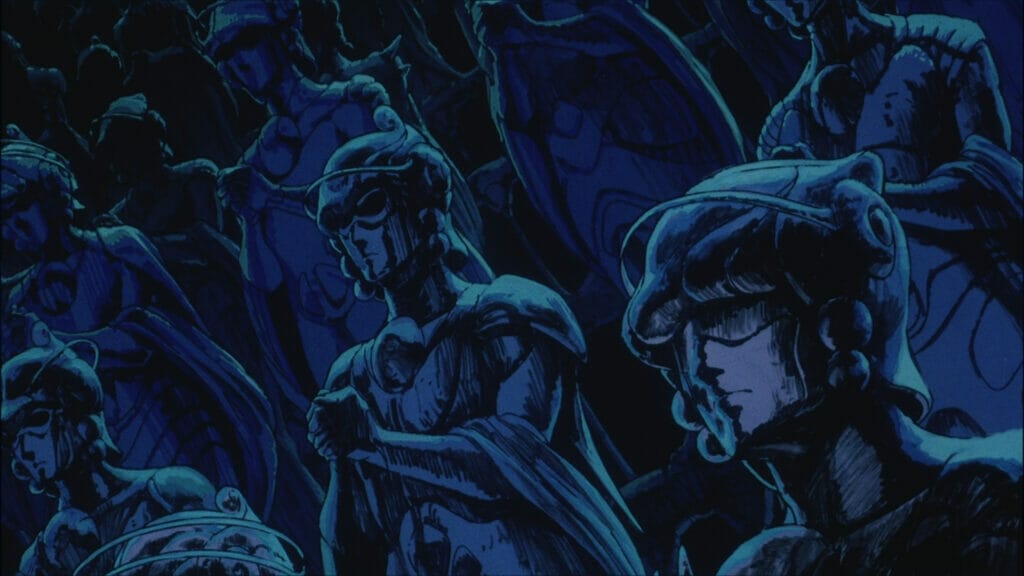
It’s a film that feels religious, full of Christian iconography and strange rituals. Characters that discuss myths even as their own behaviors and actions form the foundation for a new kind of mythology. A mythology made from disparate cultural fragments to give meaning to our current fragmented reality.
Time is elusive in Angel’s Egg. At one point, the man asks the girl if the bottles number her days in the city. She has no answer. And though both the girl and the man appear young, they remember things from long ago and from the future.
Typically, when discussing Angel’s Egg, people point to Mamoru Oshii’s self-described existential collapse as he lost his faith in Christianity (Suchenski). As such, many have come to paint the film as a haunting elegy for belief, about the loss of faith (Cavallaro). A film soaked in dread and devastation, of the meaninglessness of action, of choice. Others have described it as a Rorschach for the viewer, who must project themselves into the picture to give it meaning.
Despite the myriad interpretations, Oshii himself has claimed to not know what the film is about.
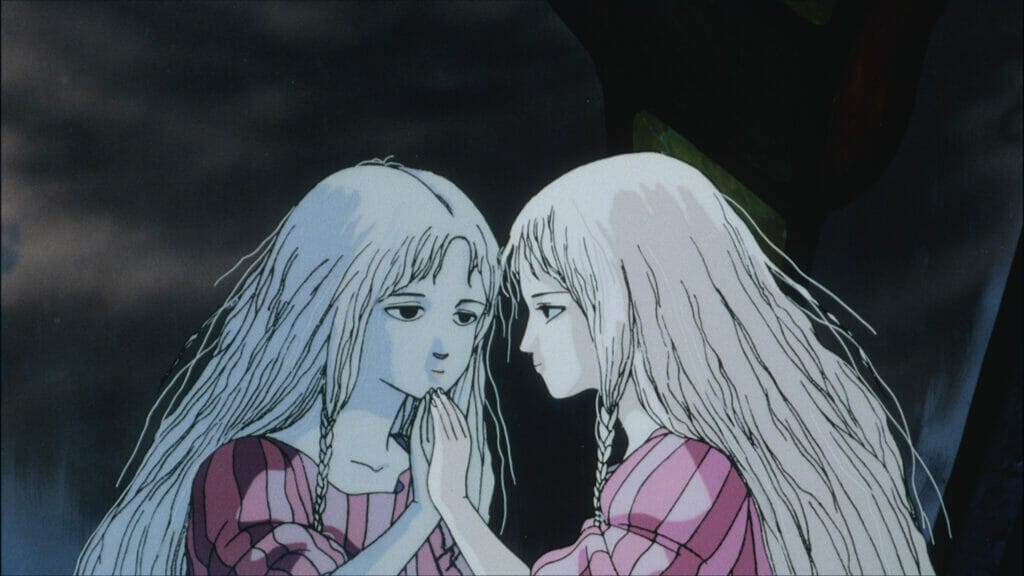
For the moment, though, let’s remain inside the film. Forget the viewer, forget the creators. The author may not be dead, but the author is an amnesiac goddess indifferent to your fears, your need for meaning, for understanding.
It is my belief that Angel’s Egg is not meant to be understood. More than that, it cannot be understood in any universal way. A film so personal, so fueled by iconography and imagery with such specific resonance that none can understand it in the same way, and none of us can tease out what these images and movements meant to Oshii and Amano, and they refuse or are unable to give clarity. While the personal is often universal, there are limits. And Angel’s Egg finds those limits.
Limits of meaning. Of communication.
The film itself is lonely, haunted even. A deranged ruin where a man and a girl find companionship, though they are never a comfort to one another. They never understand one another, nor do they try to.
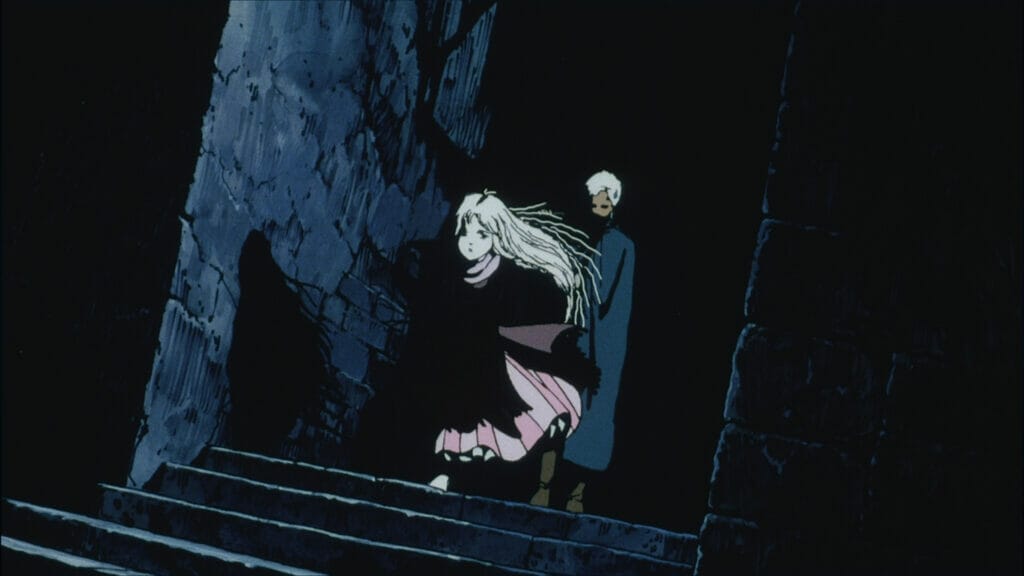
The girl runs from the man and even when she seeks him, she is afraid. It’s only that she’s more afraid of the strange, shadowy men hunting the shadow of a great fish. A fear of the massive machines rolling through the city, falling and rising from the water. A fear of isolation. Of loneliness.
I watched Angel’s Egg again and again. Even once more, last night.
I can see it when I close my eyes. The imagery swirled around and through me while I held my wife’s hand as she gave birth to our second son, born seven weeks early. I felt those mechanical monsters rumbling down the empty streets of my blood and bones as the NICU nurses hooked my son to machines, pumping oxygen into his tiny, fragile lungs. When I left the hospital to be with our three-year-old, I thought of bottles of water. Thousands upon thousands of them. Filling them day after day to give shape and substance to your days, to your life.
My life fragmented once more. The hospital, where our newborn slept with tubes shoved down his nose, plugged into his veins. My parents’ home, where I grew up so long ago, where our three-year-old missed us and begged us not to leave again. Every hour, our hearts broke for the son not with us. Forever failing one of them, unable to make either of them understand.
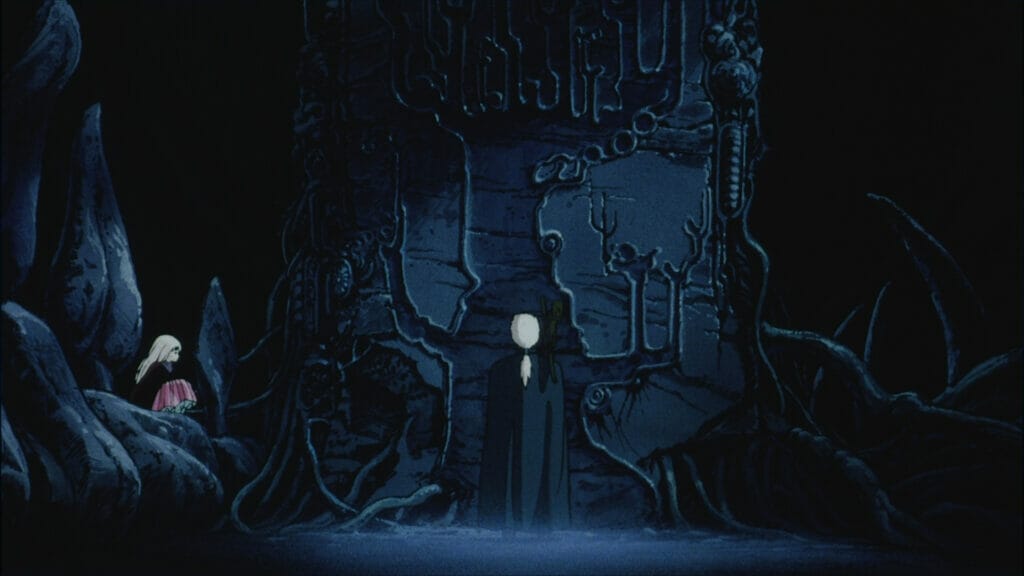
The drive between became my own ritual. The long moments between my sons, where I was, temporarily, neither a father nor a husband but just some guy on the highway, like all the thousands of others. To keep from thinking, to keep from sobbing, I listened to Philip Roth and Roberto Bolano audiobooks. Twisty, metafictional novels as much about their authors as they are about the rest of us. Works so tied up in knots inside themselves, inside the lives of their authors, that I no longer had to think about my own messy life being tied in knots by the inconveniences of time and geography, of a child lashed to machines to keep him breathing, keep his blood pumping. Of a child waiting only for me to come home to play with him, to read to him, to be his daddy.
Cycles. Circles. Ritual.
I’m a girl filling bottles of water. I carry an egg that holds my own stupid heart. I’m a man with a deformed cross, condescending and scathing, telling a child that their egg full of dreams is nothing. I raise my cross high and shatter that egg that is my own heart, splitting endlessly between my sons.
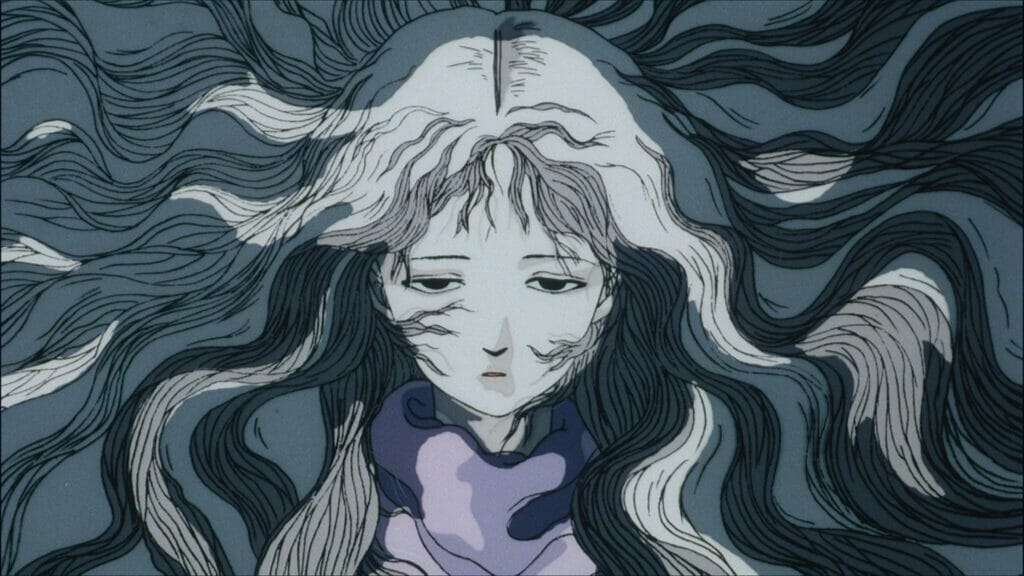
I am a girl running to a cliff and diving into the water to drown, to become another version of myself. A goddess to carve into thousands of statues to pimple the face of a great mechanical orb rising from the waters. I am a man watching the mechanical sphere full of goddesses return to the skies, abandoning me and the world, this haunted, empty city.
When I watched Angel’s Egg again in the deepest hours of night while trying futilely to rock my newborn son to sleep in a home we’ve only lived in for a few days, to give him some comfort while he contorted and grunted and farted, I felt the film close with a snap on the last eight weeks.
Already, I was becoming a new person and though the film never changed—had not changed for nearly forty years—I was seeing it again for the first time.
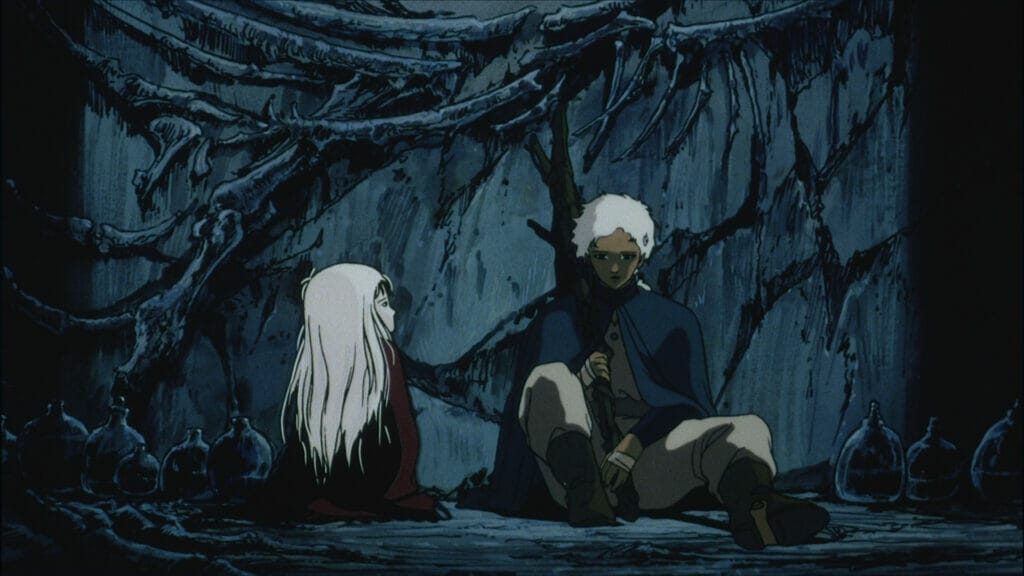
No longer fixated on ritual, on emptiness, on the vast chasms between a man and a girl, between the living and the shadows haunting the city, I saw, for the first time, a story of humanity writ large yet embodied in these two nameless protagonists.
More than that, I saw the tale of an artist attempting to explain something to himself that he doesn’t have the language for. And so it’s no wonder that Oshii says he doesn’t know what it’s about. Likewise, it’s no wonder people stare at this baffling non-story, letting the power and beauty of the imagery rain down upon them.
Angel’s Egg is more than its characters. More than ritual and loneliness. More than myths of the past and future. It is a thunderclap of life, shattering and transforming.
A search for meaning. A silent cry for significance.
And ultimately, a statement of hope.
Who are you?
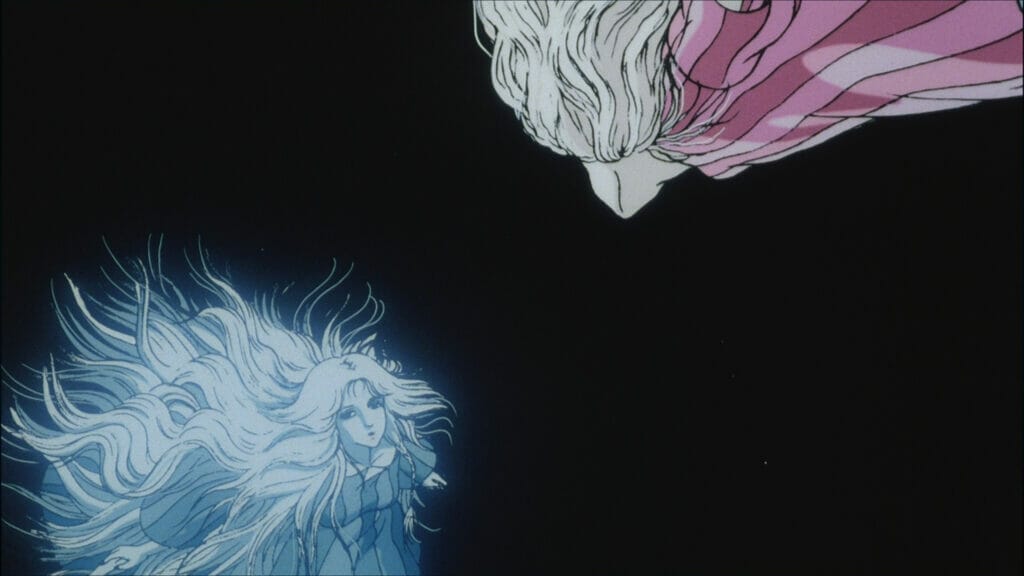
A question asked early in the film that never gets an answer. At least, not within the film itself. It’s a question we carry with us beyond the film, like a fragile egg held inside our shirt. And perhaps there is no answer for who we are, or why we’re here, or why we do the things we do. Why we turn behavior into ritual, why we give ritual meaning.
Perhaps we are no one and nothing. But, when I look into my son’s face as he howls his displeasure, I feel a sense of peace. A strange yet beatific clarity.
Our songs will all be silenced.
But what of it?
Go on singing.
Works Cited
“Forgotten Japanese OVAs Part 3: “Angel’s Egg” (1985) |.” Cartoonresearch.com, cartoonresearch.com/index.php/forgotten-japanese-ovas-part-3-angels-egg-1985.
Cavallaro, Dani. The Cinema of Mamoru Oshii : Fantasy, Technology and Politics. Jefferson (North Carolina) ; London Mcfarland & Company, 2006.
Suchenski, Richard. Oshii, Mamoru – Senses of Cinema. sensesofcinema.com/2004/great-directors/oshii.
“Angel’s Egg.” Bakanow Anime Reviews, 21 July 2020, bakanow.com/angels-egg.


